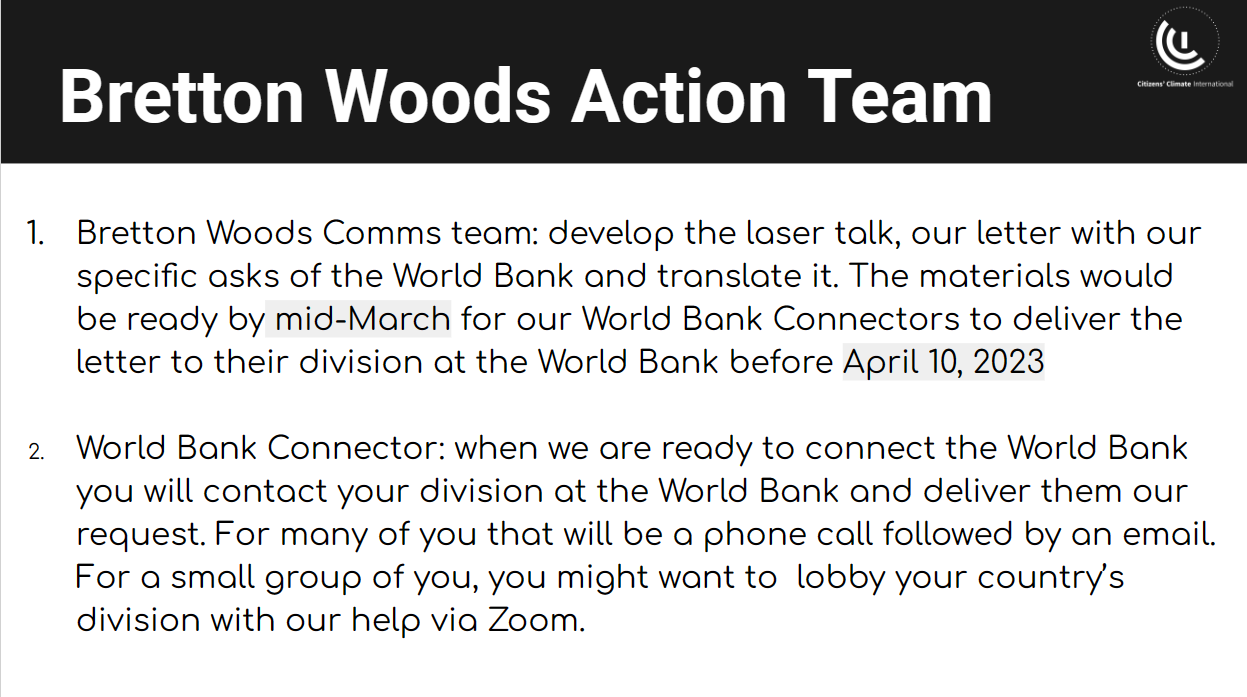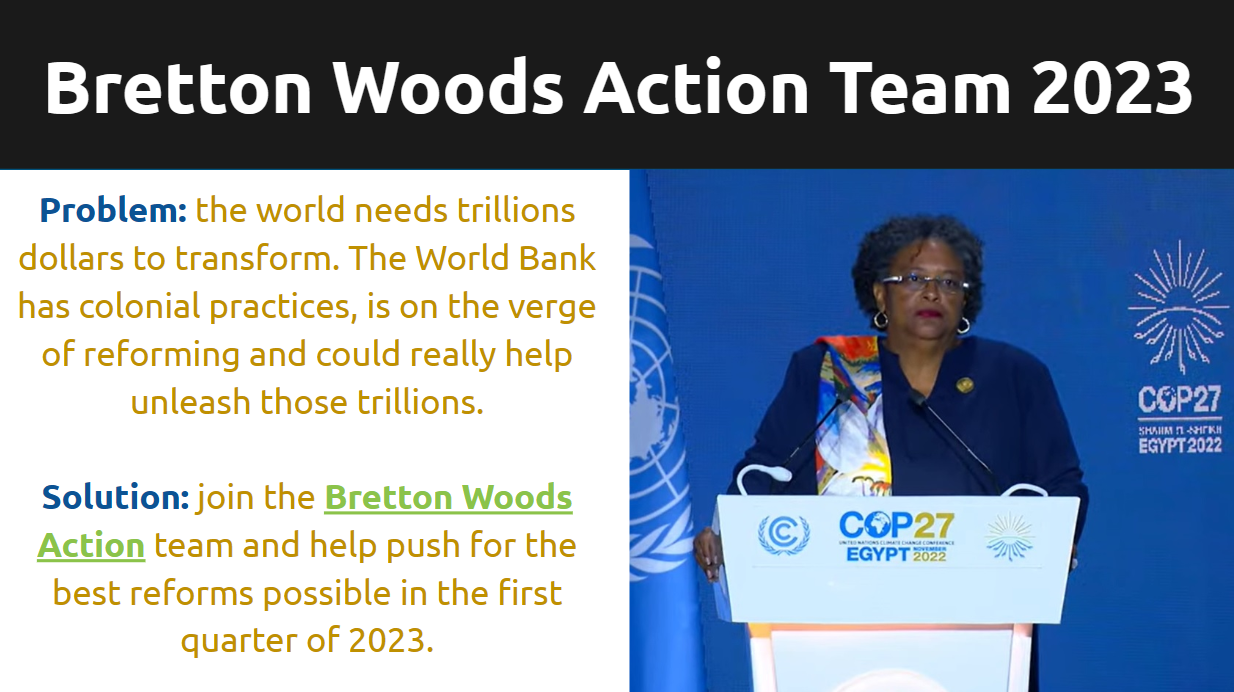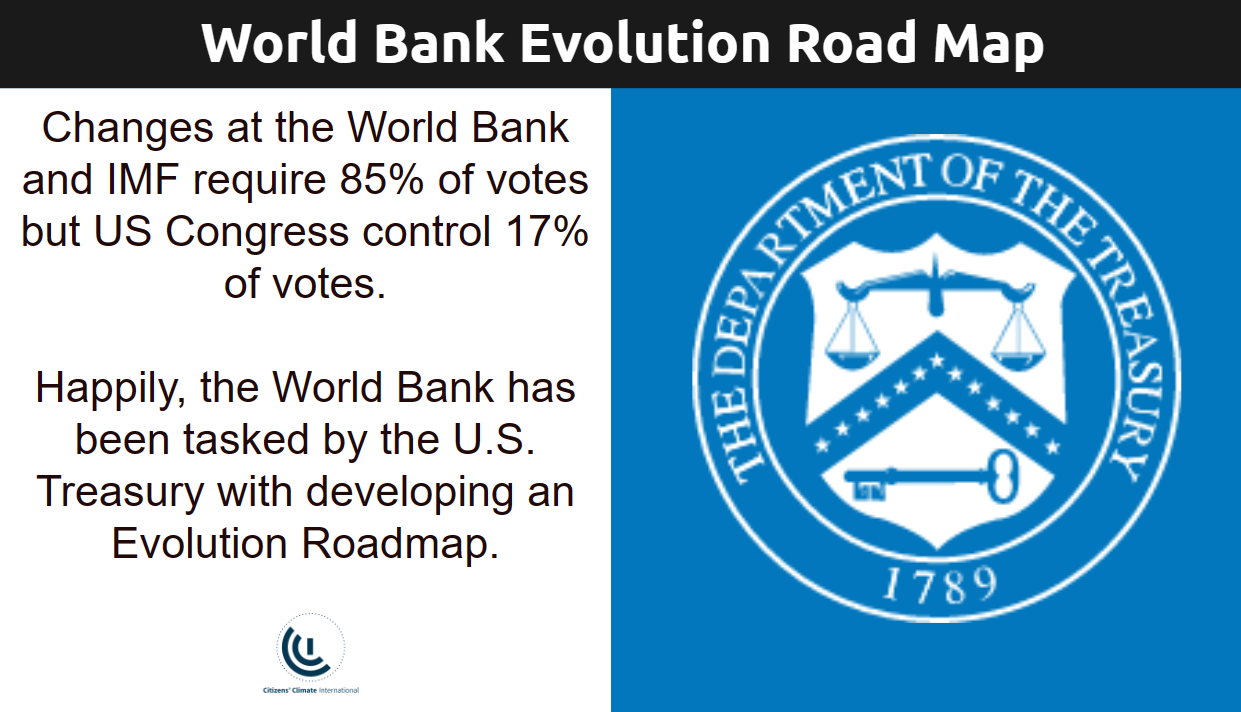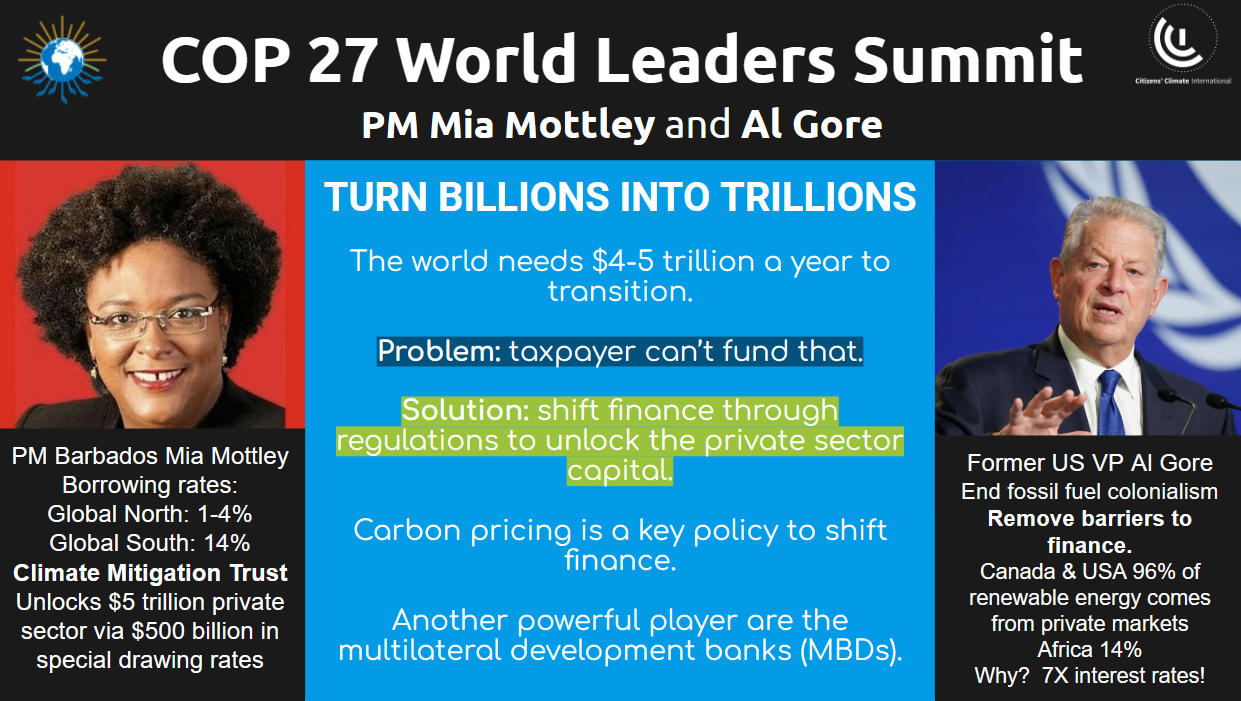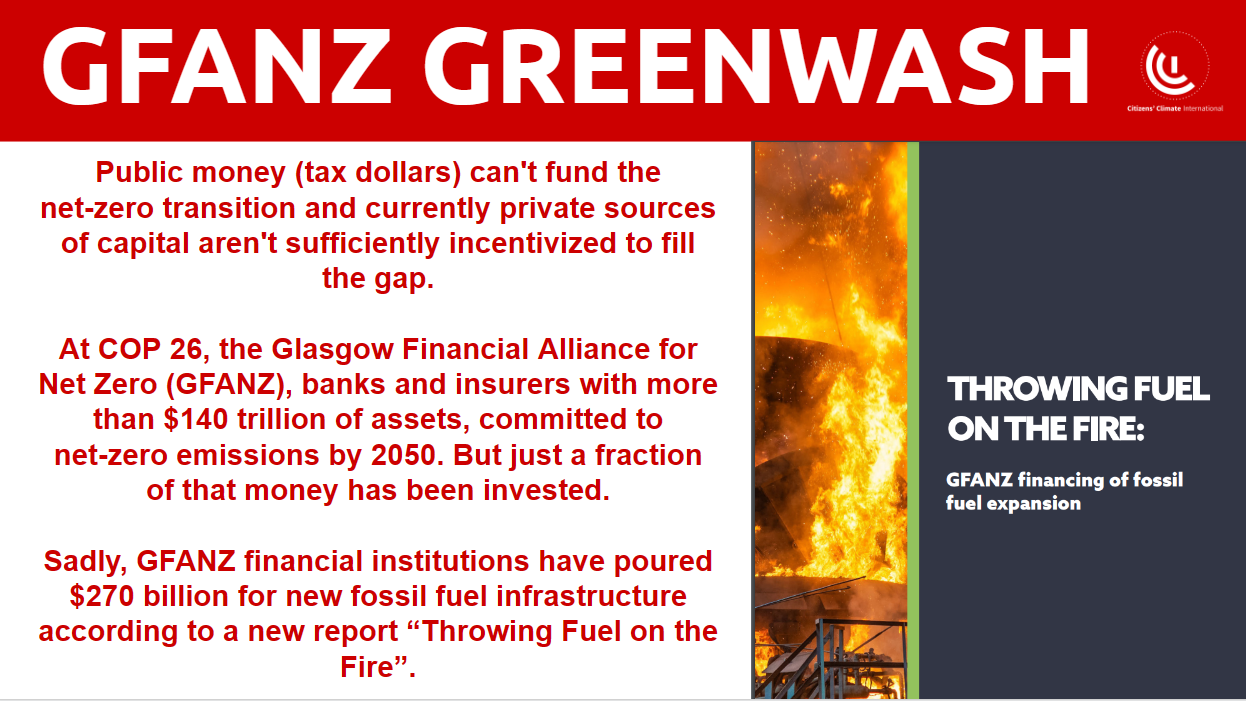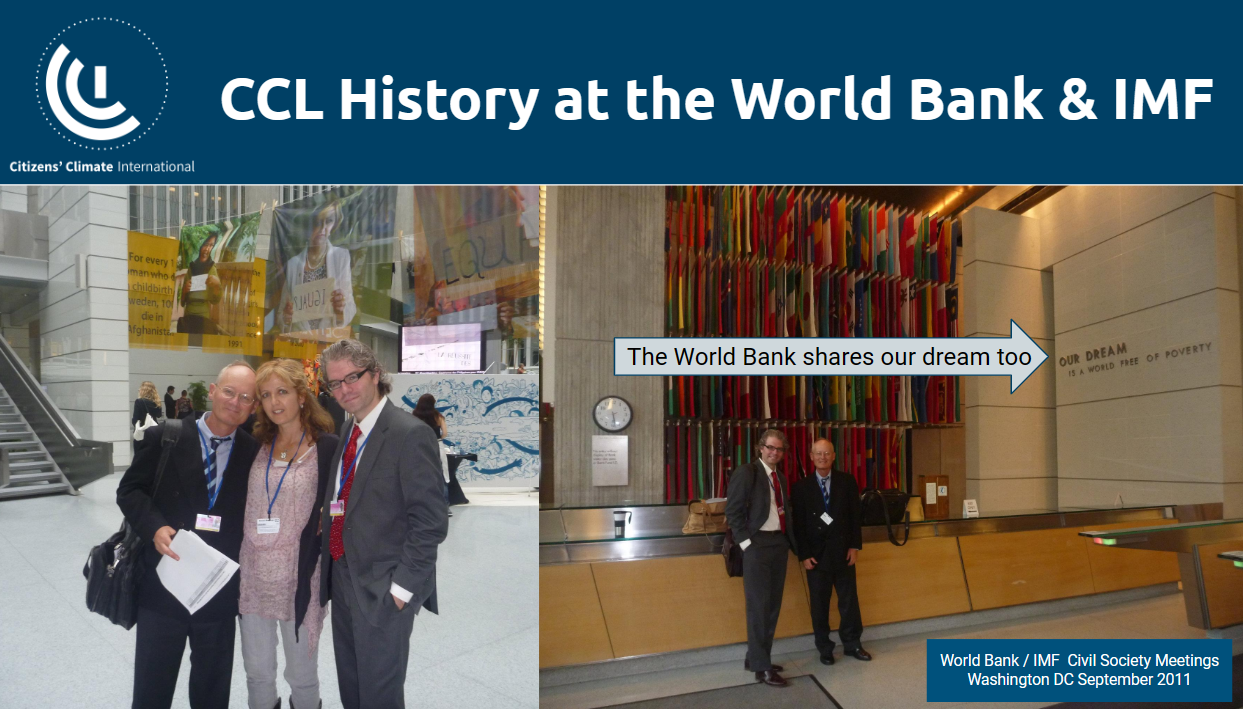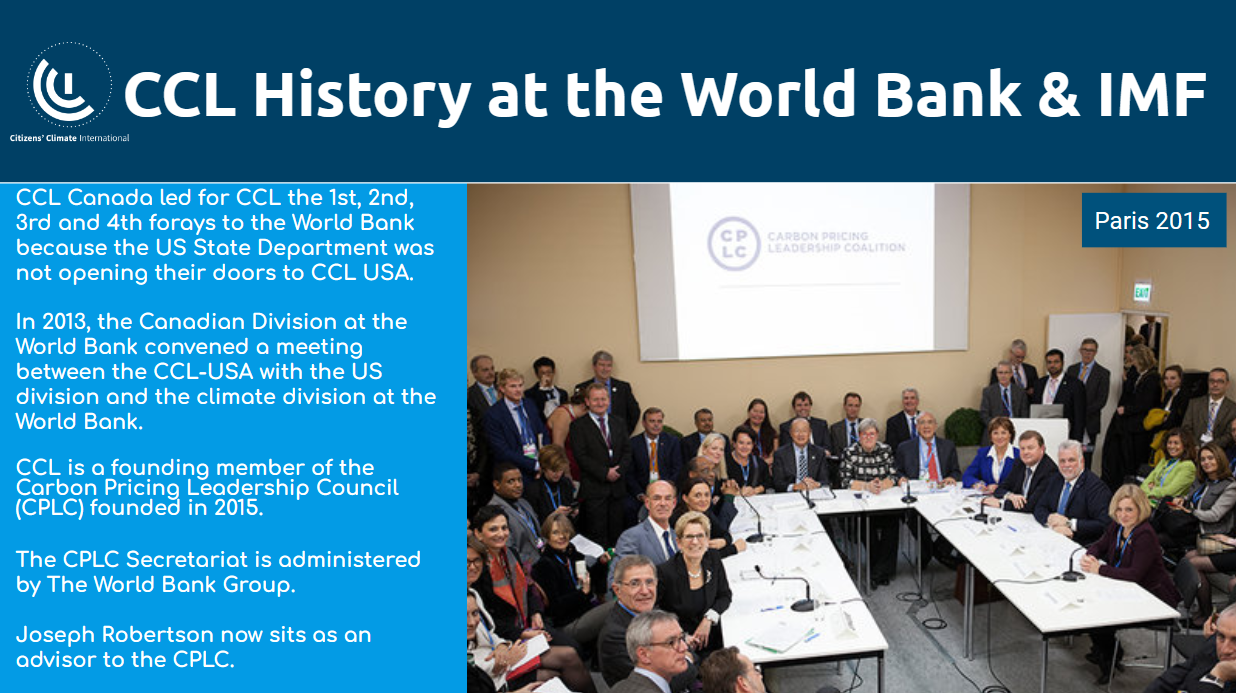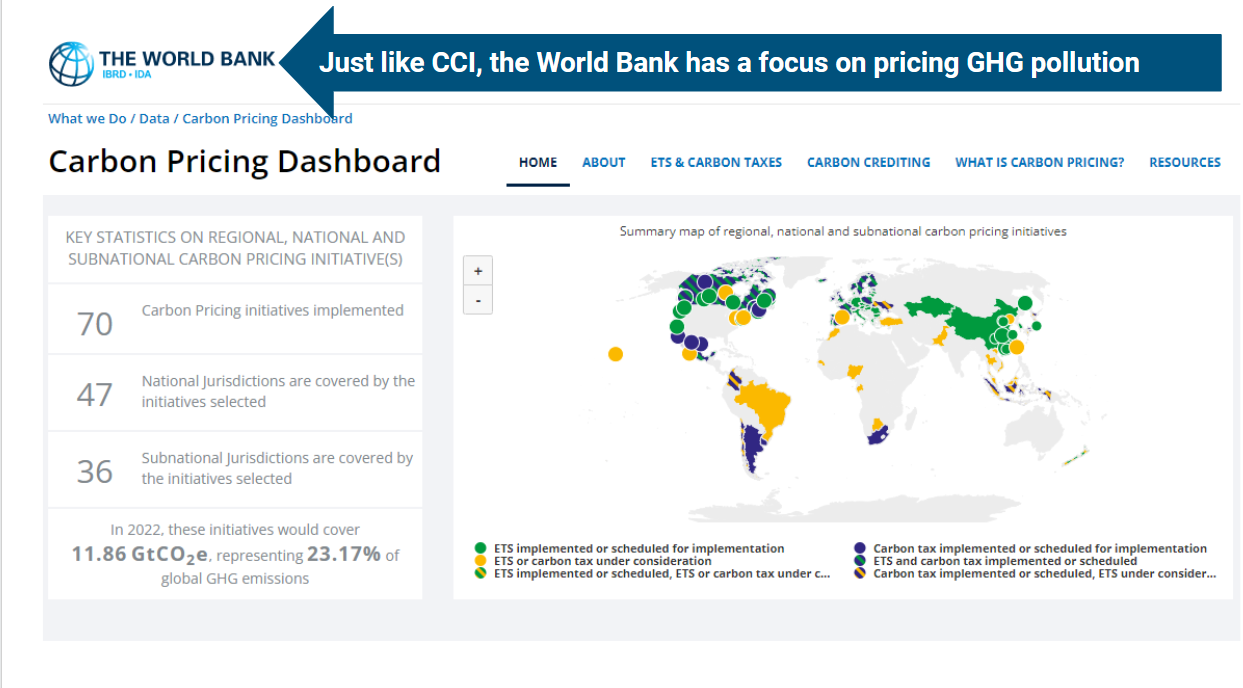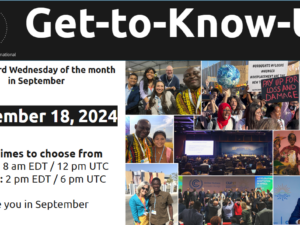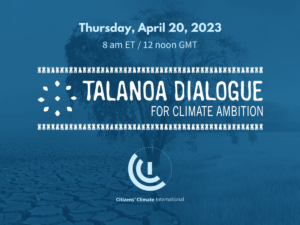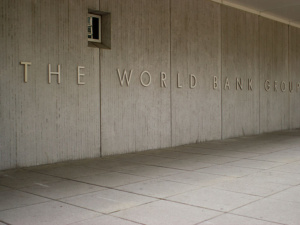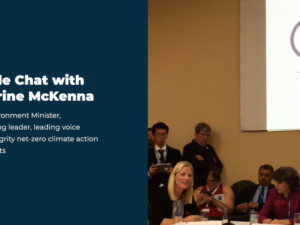From March 15, 2023 to April 10, 2023 volunteers from around the world in our organization will be contacting their division at the World Bank in Washington DC regarding the reforms underway.
Du 15 mars 2023 au 10 avril 2023, des volontaires de notre organisation dans le monde entier contacteront leur division à la Banque mondiale à Washington DC au sujet des réformes en cours.
Del 15 de marzo de 2023 al 10 de abril de 2023, voluntarios de nuestra organización de todo el mundo se pondrán en contacto con su división en el Banco Mundial en Washington DC en relación con las reformas que se están produciendo.
ACTION March 15 to April 10
From March 15, 2023 to April 10, 2023, we are asking our volunteers to contact their division at the World Bank.
There are three options to choose from:
- Email your country’s Executive Director at the World Bank in Washington DC.
Email
2-pager
Important: Please carbon copy (cc) projects@citizensclimateintl.org on all emails to the World Bank - Call and then email your country’s at the World Bank in Washington DC.
Phone script
Email
2-pager
Important: Please carbon copy (cc) projects@citizensclimateintl.org on all emails to the World Bank - Call, email and then push for meeting between the CCI staff with your country’s director during the World Bank Spring meetings. Please inform CCI staff if this is your plan.
Phone Script
Email
2-pager
Important: Please carbon copy (cc) projects@citizensclimateintl.org on all emails to the World Bank
ACTION 15 mars au 10 avril
- Contacter le représentant de votre pays avec la Banque Mondiale (préférentiellement par email) en copiant la lettre ci-dessous.
- De partager une lettre pour leur inviter à s’engager dans l’action Bretton Woods.
- Veuillez mettre projects@citizensclimateintl.
org en copie carbone (cc) de vos courriels à la Banque mondiale.
VOICI LA LETTRE EN QUESTION
Cher [le nom de votre directeur exécutif à la Banque mondiale à Washington DC]
Nous faisons partie des précurseurs en matière de lutte contre le changement climatique au sein de Citizens’ Climate International (CCI) en[le pays où vous vivez, e.g. France, Cote d’Ivoire, …]. CCI a des équipes actives dans 51 pays et des équipes en développement dans 25 autres pays.
La feuille de route sur l’évolution du groupe de la Banque mondiale a reconnu la crise du développement et la nécessité d’améliorer ses capacités financières pour répondre aux exigences du 21e siècle, poursuivre sa lutte contre la pauvreté, combattre le changement climatique et accroître la résilience à ses effets.
En tant que contribuables, nous sommes concernés par les décisions de la Banque mondiale sur la manière de faire face à l’aggravation des crises mondiales. Au nom de CCI, nous demandons à la Banque mondiale de :
-
Soutenir l’initiative de Bridgetown du Premier ministre de la Barbade, Mia Mottley. Elle bénéficie d’un soutien croissant et commence à porter ses fruits.
-
Fonder toutes les réformes sur les droits de l’homme et l’égalité des sexes.
-
Donner aux citoyens la possibilité d’apporter une contribution significative aux réformes. Cela doit aller au-delà des réunions de la société civile de la Banque mondiale.
-
Étudier comment l’argent peut être distribué directement aux ménages dans le besoin, puis élaborer un plan de mise en œuvre pour soutenir l’activation de ces politiques.
Vous trouverez ci-joint notre demande complète avec des liens hypertextes.
Le système financier dont nous disposons ne répond pas aux besoins des populations vulnérables et à faibles revenus, ni au défi global que représente la lutte contre l’urgence climatique. Le monde a besoin d’institutions financières internationales adoptant des réformes qui soutiennent et responsabilisent les plus vulnérables et mettent fin à la pauvreté tout en assurant un avenir prospère pour tous.
Si vous souhaitez nous rencontrer ou communiquer d’une autre manière, nous en serions ravis. Nous attendons avec empressement votre réponse.
Je vous prie d’agréer, Madame, Monsieur, l’expression de mes salutations distinguées,
[les noms des membres de l’équipe de Bretton Woods de votre pays].
PLUS D’INSTRUCTIONS
Comment trouver les coordonnées du directeur exécutif de votre pays :
- Trouvez votre pays dans la liste ci-dessous. Notez que la plupart des directeurs de la Banque mondiale sont responsables de plusieurs pays.
EDSO4: France
EDS13: Benin, Burkina Faso, Cabo Verde, Cameroon, Central African Republic, Chad, Comoros, Democratic Republic of Congo, Republic of Congo, Côte d’Ivoire, Djibouti, Gabon, Guinea, Guinea-Bissau, Equatorial Guinea, Madagascar, Mali, Mauritania, Mauritius, Niger, Sao Tome and Principe, Senegal and Togo
EDS15: Brazil, Colombia, Dominican Republic, Ecuador, Haiti, Panama, Philippines, Suriname and Trinidad & Tobago
- Cliquez sur votre pays.
- Vous serez alors redirigé vers la page de l’administrateur de votre pays.
- Sur la gauche de la page se trouve la description de la division de votre pays à la Banque mondiale. Lisez-la. Elle est très instructive.
- Sur le côté droit de la page, vous trouverez les noms des administrateurs de votre division.
La plupart du temps, il y a un directeur exécutif et un directeur suppléant. Votre équipe peut déterminer qui est le meilleur interlocuteur. - Cliquez sur “En savoir plus” pour obtenir toutes leurs informations.
- Renseignez-vous sur votre (vos) directeur(s) exécutif(s).
PROJET BRETTON WOODS – Présentation bilingue :
Our requests
We are taxpayers and therefore stakeholders in the World Bank. On behalf of CCI, we request the World Bank
- Support the Bridgetown Initiative of the Prime Minister of Barbados Mia Mottley. It is gaining support and beginning to work.
- Ground all reforms in human rights and gender equality.
- Give citizens the opportunity to share meaningful input into the reforms. This must go beyond the World Bank Civil Society meetings.
- Investigate how money can be dispensed directly to households in need and then develop an implementation plan to support the activation of such policies.
Why we support the Bridgetown Initiative
Laser Talk: Why we support the Bridgetown Initiative
We all know the importance of balancing the books. Thus, it is not an exagerration to think that our global economy is on the verge of collapse. Dividends are being paid out, but at the expense of people and planet. Our financial operating system is out of date. We’ve ignored the notifications for so long that inequality and climate catastrophe are affecting our daily lives. We need to invest to heal inequalities, restore health to the planet and build resilience to future crises.
Barbadoes Prime Minister Mia Mottley’s Bridgetown Initiative would address immediate fiscal concerns and increase vulnerable countries’ resilience to shocks. It is gaining support and beginning to work.
Many of the Bridgetown initiatives require no financial transfers from developed country taxpayers. They are based on the concept that if ideas change minds, then the global economic system will change for the greater good:
- Developed countries can exercise influence to push the World Bank and other multilateral development banks (MDBs) to better leverage their balance sheets. Recommendations from a G20 expert group could leverage an additional $1 trillion for climate and development finance.
- US and European leaders can deliver promises of emergency liquidity using $100 billion of Special Drawing Rights, through the International Monetary Fund and MDBs creating fiscal space in developing countries, quickly, and without harmful conditions.
- Create a Loss and Damage funding mechanism will support climate equity at the UN climate conferences. Political support for the UNSG proposal to tax windfall profits from oil and gas exports could be an important first step.
- Innovative funding mechanisms could unlock additional political capital for a paradigm shift in resource mobilization. A Global Climate Mitigation Trust, borrowing on capital markets, backed by $500bn of Special Drawing Rights, donor guarantees, or similar instruments is another proposal.
- Heightened recognition of the nexus of climate and development stimulates new ways to engage the private sector. Innovative instruments (debt for equity swaps, state-contingent debt instruments, regional guarantee platforms) provide financing options for recipient countries, including the use of instruments that incentivize private finance, and could stimulate increased South-South investments.
The financial operating system is out of date. The Bridgetown Initiative will change mindsets and requires a relatively modest financial investment from taxpayers in the Global North through the multi-lateral development banks. It will rebalance our financial system through fair and sustainable development to avert environmental, economic and societal collapse.
Objectives / Objectifs / Objetivos
Our 4 objectives:
- Give our global climate leaders the opportunity to build a relationship with their divisions at the World Bank in Washington DC.
- Possibly soften the ground for CCI staff meeting with Executive Directors at the World Bank while they are at the Spring Meetings in Washington, DC in April.
- Let the World Bank know that citizens around the world are watching what is happening with the reforms.
- Give the World Bank a head’s up that you are emailing them. (Only applicable of your group is doing the phoning then emailing option).
Nos 4 objectifs :
- Donner à nos leaders mondiaux en matière de climat l’occasion d’établir une relation avec leurs divisions à la Banque mondiale à Washington DC.
- Il est possible d’assouplir le terrain pour que le personnel de l’AIPE rencontre les directeurs exécutifs de la Banque mondiale lors des réunions de printemps à Washington, DC, en avril.
- Faire savoir à la Banque mondiale que les citoyens du monde entier suivent l’évolution des réformes.
- Prévenez la Banque mondiale que vous lui envoyez un courriel. (Seul un membre de votre groupe est concerné par l’option “téléphoner puis envoyer un courriel”).
Nuestros 4 objetivos:
- Dar a nuestros líderes mundiales del clima la oportunidad de establecer una relación con sus divisiones en el Banco Mundial en Washington DC.
- Posiblemente allanar el terreno para que el personal de CCI se reúna con los Directores Ejecutivos del Banco Mundial mientras se encuentran en las Reuniones de Primavera en Washington DC en abril.
- Hacer saber al Banco Mundial que ciudadanos de todo el mundo están pendientes de lo que ocurre con las reformas.
- Avisa al Banco Mundial de que les estás enviando correos electrónicos. (La opción de llamar por teléfono y luego enviar un correo electrónico sólo es aplicable a tu grupo).
Contact (o)
Instructions:
- Find your country on the list below. Note, most directors at the World Bank are responsible for many countries.
- Click on it.
- You will then be redirected to the page for your country’s Executive Director.
- On the left hand of the page is description of your country’s division at the World Bank. Read it. It is quite informative.
- On the right hand side of the page you will find the names of your division’s Executive Directors.
- Most of the time there is an Executive Director and Alternate Director. Your team can determine who best to connect with.
- Click on “Read More” to get your all their information.
- Read about your Executive Director (s).
- If you are emailing only, email both of them. Be sure to put this email in your email too: projects@citizensclimateintl.org
- Note that not all Executive Directors provide phone numbers on the website. If you are planning to phone and you cannot find the phone number on the webpage for your country’s Executive Director, phone the main World Bank phone number and asked to be connected through to your Division. 1 (202) 473-1000
Instructions :
- Trouvez votre pays dans la liste ci-dessous. Notez que la plupart des directeurs de la Banque mondiale sont responsables de plusieurs pays.
- Cliquez sur votre pays.
- Vous serez alors redirigé vers la page de l’administrateur de votre pays.
- Sur la gauche de la page se trouve la description de la division de votre pays à la Banque mondiale. Lisez-la. Elle est très instructive.
- Sur le côté droit de la page, vous trouverez les noms des administrateurs de votre division.
- La plupart du temps, il y a un directeur exécutif et un directeur suppléant. Votre équipe peut déterminer qui est le meilleur interlocuteur.
- Cliquez sur “En savoir plus” pour obtenir toutes leurs informations.
- Renseignez-vous sur votre (vos) directeur(s) exécutif(s).
- Si vous n’envoyez qu’un courriel, envoyez un courriel aux deux. N’oubliez pas d’inclure cet e-mail dans votre courriel : projects@citizensclimateintl.org
- Notez que tous les directeurs exécutifs n’indiquent pas leur numéro de téléphone sur le site web. Si vous prévoyez de téléphoner et que vous ne trouvez pas le numéro de téléphone de l’administrateur de votre pays sur la page web, appelez le numéro de téléphone principal de la Banque mondiale et demandez à être mis en relation avec votre division. 1 (202) 473-1000
Instrucciones:
- Busque su país en la siguiente lista. Tenga en cuenta que la mayoría de los directores del Banco Mundial son responsables de muchos países.
- Haga clic en él.
- Se le redirigirá a la página del Director Ejecutivo de su país.
- En la parte izquierda de la página encontrará una descripción de la división de su país en el Banco Mundial. Léala. Es bastante informativa.
- En la parte derecha de la página encontrará los nombres de los Directores Ejecutivos de su división.
- La mayoría de las veces hay un Director Ejecutivo y un Director Suplente. Su equipo puede determinar con quién es mejor ponerse en contacto.
- Haga clic en “Leer más” para obtener toda la información.
- Infórmese sobre su(s) Director(es) Ejecutivo(s).
- Si sólo vas a enviar un correo electrónico, envíalo a ambos. Asegúrate de poner también este correo electrónico en el tuyo: projects@citizensclimateintl.org
- Tenga en cuenta que no todos los Directores Ejecutivos facilitan números de teléfono en el sitio web. Si tiene previsto llamar por teléfono y no encuentra en la página web el número de teléfono del Director Ejecutivo de su país, llame al número principal del Banco Mundial y pida que le comuniquen con su División. 1 (202) 473-1000
————————-
CCI Help
In addition to our monthly Global Get-Together meetings on Tuesday, March 14, 2023, we also will have six more optional meetings if you need help.
Special note: Canada and the USA will be in Daylight savings time starting March 11. Thus, for many of you these meetings might now be taking place one hour earlier – including Europeans.
CCI Global Get-Together Meetings
Tuesday, March 14, 2023
Zoom Room: https://citizensclimate.zoom.us/j/3920795005
Look in emails for passcode.
Call #1: 8 am EDT / 12 pm UTC
Call #2: 2 pm EDT / 6 pm UTC
Call # 3: 8 pm EDT / 12 am UTC (Wednesday outside the Americas)
Special Bretton Woods Action Team meetings
Tuesday, March 21, and Tuesday, March 28
Zoom Room: https://citizensclimate.zoom.us/j/3920795005
Look in emails for passcode.
Call #1: 8 am EDT / 12 pm UTC
Call #2: 2 pm EDT / 6 pm UTC
Call # 3: 8 pm EDT / 12 am UTC (Wednesday outside the Americas)
Here we will answer questions, get reports from the field and keep checking to make sure everyone feels supported.
Convert to your time zone:
1. Calculate your conversion using the UTC times for your region.
2. By going here: https://dateful.com/time-zone-converter
What comes next?
April 2023 – we are aiming to have a media release before or after the World Bank Spring meetings. We will be looking for quotes from members of the Bretton Woods Action team to share.
May to June 2023 – there is special global financial reforms meeting in Paris. We may or may not run a digital campaign in the lead-up to it.
Highly suggested: Send a personalized letter to your finance minister when and if you get response from the World Bank. Important: Please carbon copy (cc) projects@citizensclimateintl.org on all emails on this action too.
LASER TALK: Bretton Woods Reforms
Bretton Woods Reforms
THE PROBLEM
The International Energy Agency (IEA) and Intergovernmental Panel on Climate Change (IPCC) have shown that fossil fuel infrastructure that is planned or already under development will exhaust the remaining carbon budget. We need a planned retreat from fossil fuels now.
PRIVATE FINANCES MUST BE LEVERAGED
Public money (tax dollars) can’t fund the net-zero transition and currently private sources of capital aren’t sufficiently incentivized to fill the gap. For example, the Glasgow Financial Alliance for Net Zero (GFANZ) banks and insurers with more than $140 trillion of assets, committed to net-zero emissions by 2050. But just a fraction of that money has been invested. Sadly, GFANZ financial institutions have poured $270 billion for new fossil fuel infrastructure according to a new report “Throwing Fuel on the Fire”.
END FOSSIL FUEL COLONIALISM
At COP 27 in Egypt Prime Minister Mia Mottley of Barbados and Vice President Al Gore called out fossil fuel colonialism in the global financial system. They both shared a statistic that crystalised the problem. On average, firms in the Global South pay seven times the interest rates compared to companies in Canada and the USA. How are Global South countries ever supposed to transition their economies? Help is needed now with overcoming several investment hurdles including debt-crises in the emerging economies, credit-rating constraints, and foreign-exchange risks.
REFORM IS COMING
Earlier in 2022, the World Bank was tasked by the U.S. Treasury—its largest shareholder—with developing a comprehensive ‘Evolution Roadmap’. In January 2023 it was released. Here is a statement from the World Bank.
“On January 11, the World Bank Group’s Boards of Executive Directors discussed with Management an Evolution Roadmap for the Bank Group to better address the scale of development challenges such as poverty, shared prosperity, inequality, and cross-border challenges including climate change, pandemics, and fragility, conflict and violence, that all affect the Group’s ability to achieve its mission. The Board expressed preliminary views on Management’s initial draft, Evolving the World Bank Group’s Mission, Operations, and Resources: A Roadmap.
THE TRANSFORMATION POTENTIAL IS HUGE
The World Bank, the IMF must step in and they are about to do so. On January 17, 2023 in Bloomberg News is “the World Bank is set to wield huge influence over how the energy transition is financed, potentially dwarfing the promised efforts of Wall Street giants like JPMorgan Chase & Co. or BlackRock Inc. to help eliminate emissions.”
At COP 27, PM Mia Mottley introduced a plan for 500 billion dollars of public money to be invested to unlock five trillion dollars in investment. For perspective, at COP 26, PM Mia Mottley cited a statistic that by November 2021 nine trillion dollars of public money was used to buffer economies globally during the COVID pandemic.
The public money at the World Bank belongs to the people of this planet. It is our right to kindly ask that it be used to create an equitable and thriving planet.
IN A NUTSHELL
Trillions of dollars of private sector money could be leveraged at the World Bank Group towards a thriving and equitable planet. It is our right and responsibility as citizens all over the world to help with this transformation. It is our money.
——————————————————
For more CCI Laser Talks go to our Laser Talks Page
World Bank Group Evolution Road Map
World Bank Group Statement on Evolution Roadmap
World Bank Evolution Roadmap (pdf)
WASHINGTON, JANUARY 13, 2023 — The World Bank Group released the following statement:
“On January 11, the World Bank Group’s Boards of Executive Directors discussed with Management an Evolution Roadmap for the Bank Group to better address the scale of development challenges such as poverty, shared prosperity, inequality, and cross-border challenges including climate change, pandemics, and fragility, conflict and violence, that all affect the Group’s ability to achieve its mission. The Board expressed preliminary views on Management’s initial draft, Evolving the World Bank Group’s Mission, Operations, and Resources: A Roadmap. The roadmap, which was not for endorsement or approval, provides a basis for Management and the Board to exchange preliminary views on priorities for the World Bank Group’s evolution, identify areas for deeper engagement over coming months and a process for reaching consensus, and begin implementation of the Bank Group’s collective reform efforts. The roadmap outlines three building blocks of this process:
(i) Review the Bank Group’s Vision and Mission.
(ii) Review the Bank Group’s Operating Model.
(iii) Explore options to enhance the Bank Group’s Financial Capacity and Model, taking into account recommendations made in the Capital Adequacy Framework Review of the G20.
Overall, the Board in its preliminary discussion reaffirmed the continued commitment to the Twin Goals of ending extreme poverty and promoting shared prosperity in a sustainable way, while serving all clients and taking into account global challenges that negatively affect client countries’ opportunities to achieve the SDGs. The Board also confirmed its commitment to serve all clients including LICs, MICs, SIDs and FCV countries. The Board in addition re-affirmed the need to work towards making the WBG more impactful and to engaging more effectively with other MDBs, IFIs and other international partners. The Executive Directors noted the principles outlined in the report and emphasized the need to be ambitious. Having provided initial reactions, the Board looks forward to discussing in greater detail the issues raised in an appropriate sequence.
The evolution is led by the Board and shareholders, working closely with Bank Group Management, through a transparent, inclusive, iterative process that will include engagement with other stakeholders. For the Spring 2023 Development Committee Meeting, a paper will be prepared to report to Governors on proposals concerning the Bank Group’s Vision and Mission and plans to drive further progress around all three building blocks and, at the same time addressing the most urgent financing capacity issues, including CAF recommendations. Based on the Governors’ guidance there and additional discussions, a Development Committee paper will be prepared for discussion at the 2023 Annual Meetings. There will also be an ongoing consultative process with relevant stakeholders.”
Contact:
In Washington: David Theis, (202) 458-8626, dtheis@worldbankgroup.org
World Bank Millenial Goals
Various developments brought the Millennium Development Goals targets for 2015 within reach in some cases. For the goals to be realized, six criteria must be met: stronger and more inclusive growth in Africa and fragile states, more effort in health and education, integration of the development and environment agendas, more as well as better aid, movement on trade negotiations, and stronger and more focused support from multilateral institutions like the World Bank.
- Eradicate Extreme Poverty and Hunger: From 1990 through 2004, the proportion of people living in extreme poverty fell from almost a third to less than a fifth. Although results vary widely within regions and countries, the trend indicates that the world as a whole can meet the goal of halving the percentage of people living in poverty. Africa’s poverty, however, is expected to rise, and most of the 36 countries where 90% of the world’s undernourished children live are in Africa. Less than a quarter of countries are on track for achieving the goal of halving under-nutrition.
- Achieve Universal Primary Education: The percentage of children in school in developing countries increased from 80% in 1991 to 88% in 2005. Still, about 72 million children of primary school age, 57% of them girls, were not being educated as of 2005.
- Promote Gender Equality: The tide is turning slowly for women in the labor market, yet far more women than men—worldwide more than 60%—are contributing but unpaid family workers. The World Bank Group Gender Action Plan was created to advance women’s economic empowerment and promote shared growth.
- Reduce Child Mortality: There is some improvement in survival rates globally; accelerated improvements are needed most urgently in South Asia and Sub-Saharan Africa. An estimated 10 million-plus children under five died in 2005; most of their deaths were from preventable causes.
- Improve Maternal Health: Almost all of the half-million women who die during pregnancy or childbirth every year live in Sub-Saharan Africa and Asia. There are numerous causes of maternal death that require a variety of health care interventions to be made widely accessible.
- Combat HIV/AIDS, Malaria, and Other Diseases: Annual numbers of new HIV infections and AIDS deaths have fallen, but the number of people living with HIV continues to grow. In the eight worst-hit southern African countries, prevalence is above 15 percent. Treatment has increased globally, but still meets only 30 percent of needs (with wide variations across countries). AIDS remains the leading cause of death in Sub-Saharan Africa (1.6 million deaths in 2007). There are 300 to 500 million cases of malaria each year, leading to more than 1 million deaths. Nearly all the cases and more than 95 percent of the deaths occur in Sub-Saharan Africa.
- Ensure Environmental Sustainability: Deforestation remains a critical problem, particularly in regions of biological diversity, which continues to decline. Greenhouse gas emissions are increasing faster than energy technology advancement.
- Develop a Global Partnership for Development: Donor countries have renewed their commitment. Donors have to fulfill their pledges to match the current rate of core program development. Emphasis is being placed on the Bank Group’s collaboration with multilateral and local partners to quicken progress toward the MDGs’ realization.
WB Paris Goals + Money Talks
THE WORLD BANK IS COMMITTED TO THE PARIS AGREEMENT
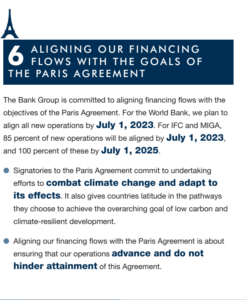
World Bank Climate Action Plan
MONEY TALKS: An Important MDB Messaging Resource

BALANCE
If we think of our economy like a big business, it is on the verge of collapse.
Dividends are being paid out, but at the expense of people and planet.
We all know the importance of balancing the books.
We need a new business model.
We need to rebalance our financial system through fair and sustainable development to avert collapse
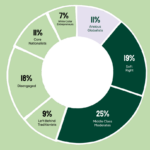
UPGRADE
The economic system is crashing.
Our financial operating system is out of date.
We’ve ignored the notifications for so long that inequality and climate catastrophe are affecting our daily lives.
We need to upgrade to fair and sustainable development to avert catastrophe.
 REVIVE
REVIVE
Our economy is on life-support.
We’ve been treating the symptoms, band-aids over huge problems like global inequality and climate catastrophe.
But we need to invest to heal inequalities, restore health to the planet and build resilience to future crises.



